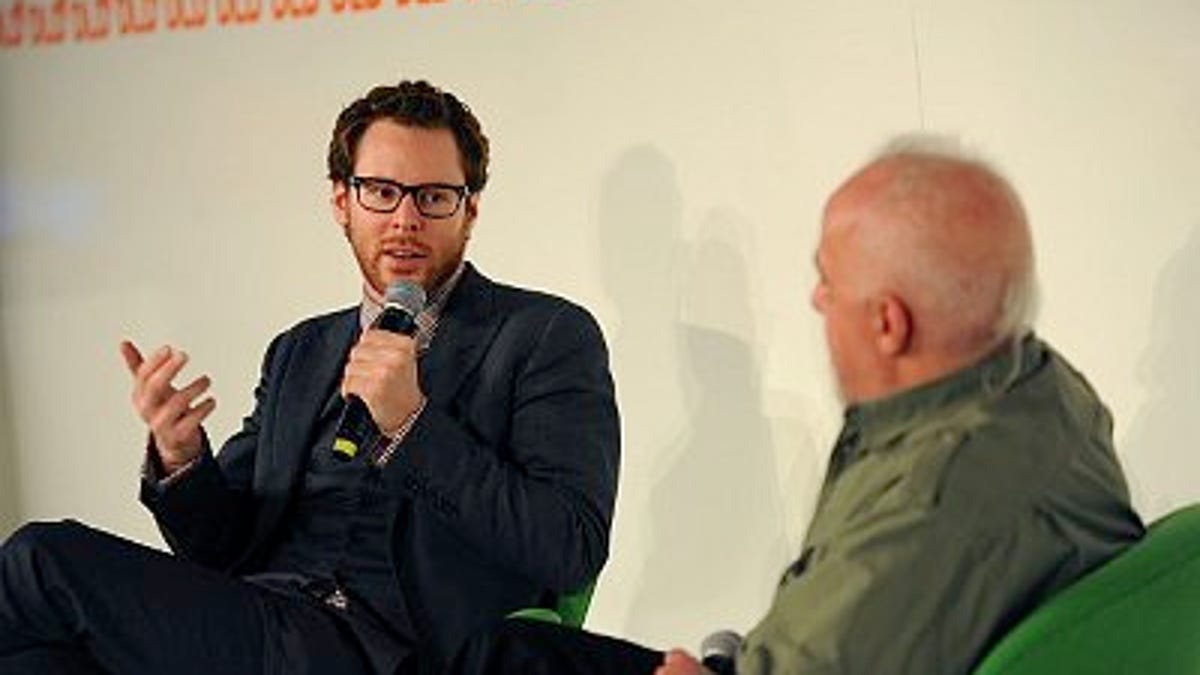Why Sean Parker thinks the Internet really needs another social network
The guy who helped make Facebook into a giant says friends need a better place online. His solution: a revamped video-based social network called Airtime.

Sean Parker says social networks have made the Internet a crowded yet lonely place. But he's got a solution: another social network.
The first time Sean Parker tried to launch Airtime, he went big -- and it blew up in his face.
During a 2012 launch party packed with A-listers like Olivia Munn and Snoop Dogg, Parker's much-touted video-messaging app glitched. He eventually shelved Airtime when its popularity failed to match the hype.
Now, Parker is getting his do-over without the glitz.
On Wednesday, the Napster co-founder turned Facebook president turned billionaire Silicon Valley celebrity released a revamped version of Airtime. In an interview before the launch, Parker described his app as a solution for an increasingly crowded and yet impersonal Internet, a problem he blames, perhaps ironically, on the explosive rise of social networks.
"We talk about [Airtime] internally as restoring intimacy in a world where social has connected us to more people than ever and yet somehow we feel more lonely as a result of it -- or at least I do," Parker said. "It's maybe one of the unintended consequences of having a billion people on social media and having 300 or more, on average, friends or followers.
"Maybe I'm just old, or maybe I don't get high on my own supply," said Parker, the guy who helped Mark Zuckerberg turn Facebook into a global behemoth.
Get a Room
The new version of Airtime, which became available on iOS and Android devices on Wednesday, isn't like the original. Airtime 1.0 was a real-time, Web-based video-messaging service where people could chat one on one with friends or strangers.
But the latest iteration of Parker's app aspires to be a social network, one based almost entirely on real-time video. The premise of Airtime is the room, a virtual place in which users can share content -- be it Instagram photos, YouTube videos, Spotify playlists, Giphy gifs -- and enjoy them in real time together. (Here's a video of the product).
Airtime is built around the idea of virtual rooms where up to 250 people can simultaneously talk, text, share songs or videos.
"There's this huge gap in the world for a kind of multi-user, many-to-many synchronous consumption of content in groups that can either be public or private," said Parker. "All the things we could sit here and do in person we ought to be able to do virtually even if we're separated by great distances."
For Parker, the current crop of social media options aren't cutting it. Periscope, Meerkat and Facebook Live, for example, allow users to live stream. But he says people want the option of limiting what they broadcast to smaller, more private audiences.
Parker wouldn't like the comparison, but Airtime is like the lovechild of Facebook and Google Hangouts. But a major difference from those two: when you're using Airtime, your avatar is live video of you, so beware.
The mobile app allows you to create "rooms" where up to 250 people can simultaneously participate, in the form of talking, messaging or sharing content. Airtime's execs see the app's rooms being especially popular with smaller groups of friends wanting to experience private moments together.
"We see groups of girls, or at least we think they're girls, hanging out for hours on our product watching YouTube videos together," said Airtime Media President Daniel Klaus.
Parker and Klaus say their research has found this type of co-consumption of media is on the rise. And for Parker, this time around, the stakes couldn't be higher.
"Getting it right can be the difference between being the next-gen social platform that has a billion users or something that's a toy or a gimmick."